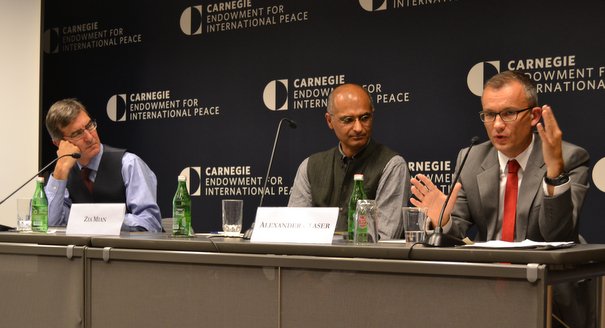Registration
You will receive an email confirming your registration.
Nuclear disarmament, nuclear nonproliferation, and the threat of nuclear terrorism are among the most critical challenges facing the world today. In a major new book, Unmaking the Bomb, a group of physicists and experts on nuclear security from Princeton University’s Program on Science and Global Security and the International Panel on Fissile Materials propose a fresh approach to addressing these long-held nuclear challenges.
Rather than tackling these issues separately, the authors argue that all three must be understood and realized together with renewed focus on the production, stockpiling, and disposal of plutonium and highly enriched uranium.
Carnegie hosted two of the book’s authors to explain the scale and nature of the fissile materials challenge and outline proposed policies aimed at reducing and eventually ending the dangers these materials pose. These include ending the production of highly enriched uranium and plutonium for weapons, as well as their use as military and civilian reactor fuels, and the verified elimination of all national stockpiles.
Alexander Glaser
Alexander Glaser is an assistant professor in Princeton University’s Department of Mechanical and Aerospace Engineering and Program on Science and Global Security. His work focuses on the technical aspects of nuclear-fuel-cycle technologies and policy questions related to nuclear energy and nuclear-weapon proliferation.
Zia Mian
Zia Mian directs the Project on Peace and Security in South Asia, at Princeton University’s Program on Science and Global Security. His research and teaching focuses on nuclear weapons and nuclear energy policy, especially in Pakistan and India, and on issues of nuclear disarmament and peace. He received the 2014 Linus Pauling Legacy Award.
George Perkovich
George Perkovich is vice president for studies and director of the Nuclear Policy Program at the Carnegie Endowment for International Peace. His research focuses on nuclear strategy and nonproliferation, with a concentration on South Asia, Iran, and the problem of justice in the international political economy.
